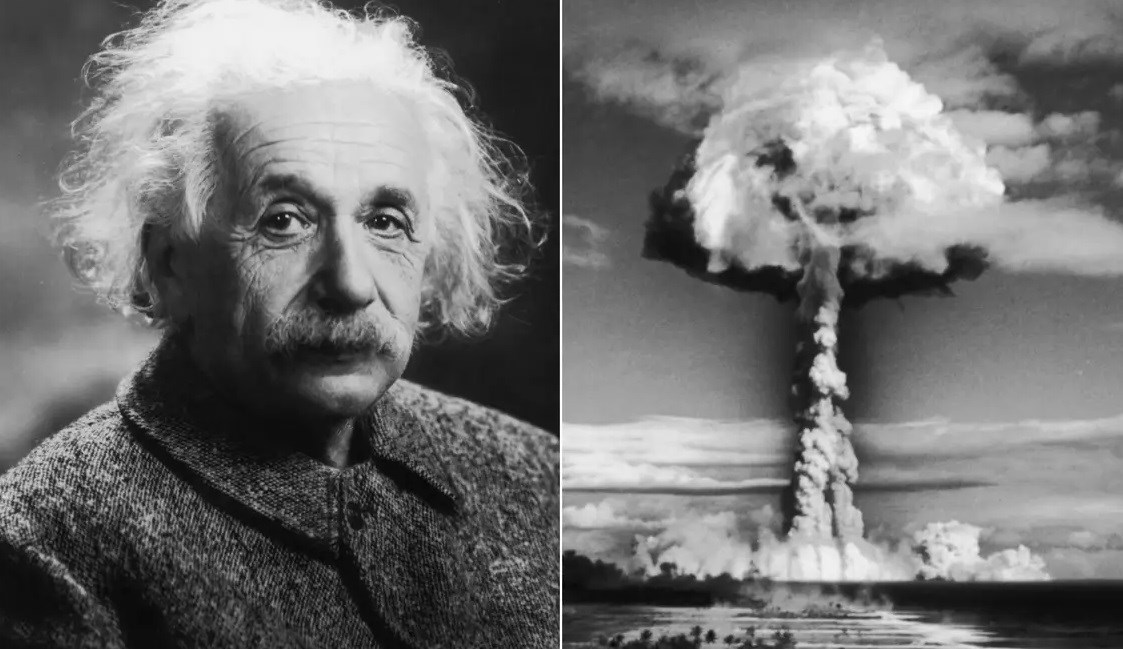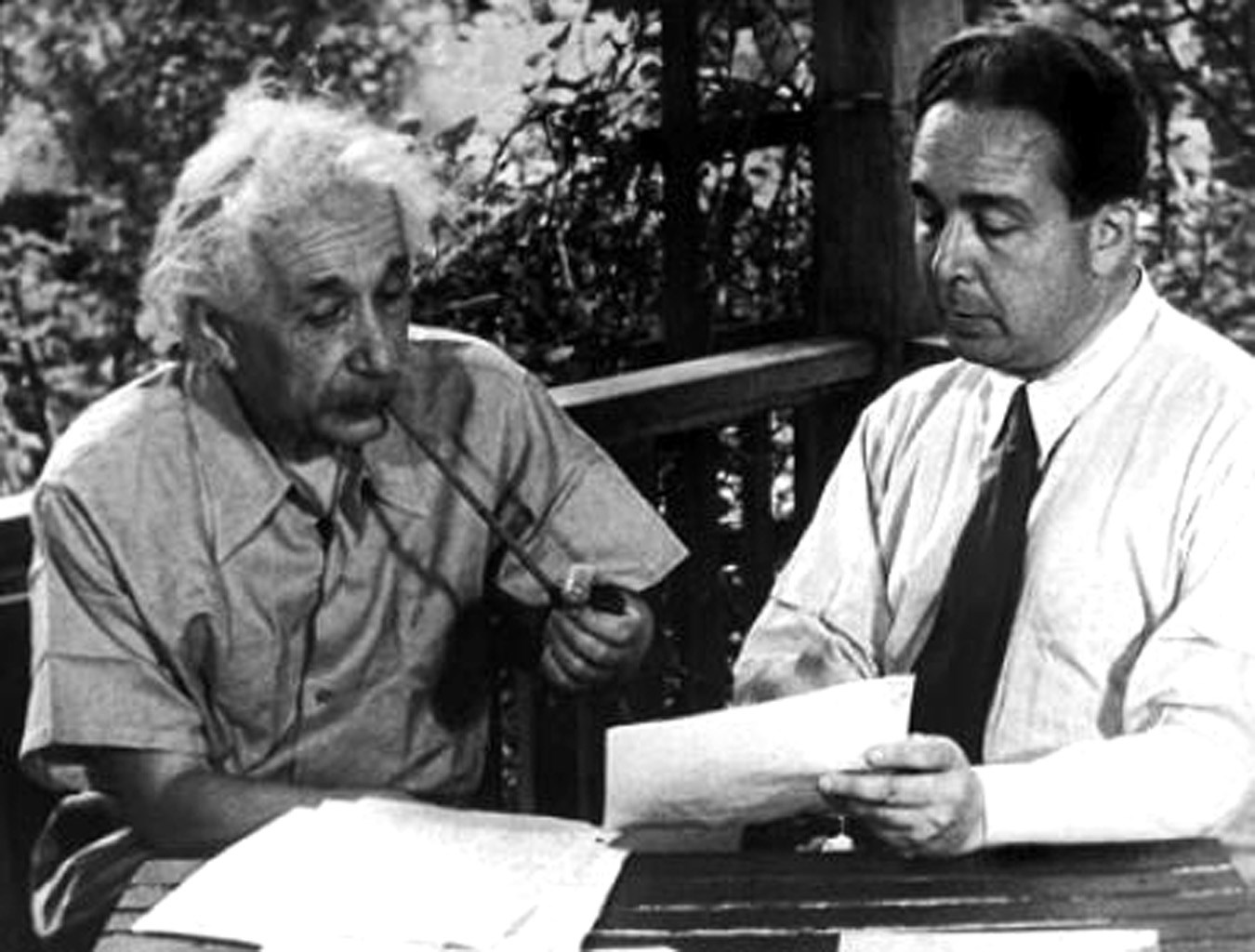 After Nazi Germany invaded Poland in 1939, notably Albert Einstein, Leo Szilard and Eugene Wigner warned the US government that the Nazis could be the one to develop the first nuclear bomb and this could have devastating consequences for humanity. Einstein called for the United States to be the first to develop a nuclear bomb as a deterrent, leading to the establishment of the Manhattan Project in 1942 and eventually the development of the first nuclear bomb.
After Nazi Germany invaded Poland in 1939, notably Albert Einstein, Leo Szilard and Eugene Wigner warned the US government that the Nazis could be the one to develop the first nuclear bomb and this could have devastating consequences for humanity. Einstein called for the United States to be the first to develop a nuclear bomb as a deterrent, leading to the establishment of the Manhattan Project in 1942 and eventually the development of the first nuclear bomb.Interestingly, although Einstein was a key figure in the creation of the Manhattan Project, he was never a part of it.
call to action
In August 1939, Einstein and Szilard sent a letter to US President Franklin D. Roosevelt warning that the Nazis could develop a nuclear bomb. The letter referred to the work of the Hungarian physicist Szilard and recommended “rapid action” to launch a nuclear program against this impending threat.
Despite urging the United States to launch a nuclear program, Einstein was never involved in the Manhattan Project, and even the physicists selected by J. Robert Oppenheimer, director of Los Alamos Laboratory, the subject of Christopher Nolan’s new film about the development of the nuclear bomb, were forbidden from consulting Einstein.
 This was because US officials believed Einstein’s left-wing political views posed a security threat. Indeed, in July 1940, the US Army Intelligence Office did not grant Einstein the security clearance required to work on the project due to his political ideology. After several years, the Manhattan Project was established in August 1942. On July 16, Oppenheimer and his so-called “intellectuals” carried out the first detonation of a nuclear weapon called a “Gadget” for the Trinity Test. Less than a month later, Allied forces dropped the nuclear weapons they had built on Hiroshima and Nagasaki in Japan.
This was because US officials believed Einstein’s left-wing political views posed a security threat. Indeed, in July 1940, the US Army Intelligence Office did not grant Einstein the security clearance required to work on the project due to his political ideology. After several years, the Manhattan Project was established in August 1942. On July 16, Oppenheimer and his so-called “intellectuals” carried out the first detonation of a nuclear weapon called a “Gadget” for the Trinity Test. Less than a month later, Allied forces dropped the nuclear weapons they had built on Hiroshima and Nagasaki in Japan.According to the Bulletin of the Atomic Scientists, Einstein is reported to have said “Shame on me” when he learned of these horrific attacks: “If I had known that the Germans would not be able to produce an atomic bomb, I would not have lifted a finger.”
According to The New York Times, Szilard and his Hungarian-born physicist friend Eugene Wigner agreed with Einstein.
Oppenheimer echoed Einstein’s regret
Robert Oppenheimer himself expressed his regret later in life by repeating the feelings expressed by Einstein. As Oppenheimer witnessed the first nuclear weapon explosion on July 16, 1945, he thought of a passage from the Hindu scripture Bhagavad-Gita: “Now I am Death, destroyer of worlds”.
Shortly after the atomic bombings of Hiroshima and Nagasaki were dropped, Albert Einstein made the following statement:
“Now the time has come when humanity must give up war. It no longer makes sense to resolve international problems by resorting to war. Now that an atomic bomb, like the bombs detonated in Hiroshima and Nagasaki, can destroy a city, kill all the people in a small city the size of Minneapolis, we can now see that we need to use the power of human reason to resolve conflicts between nations.
In accordance with the principles of justice, we must develop international law, strengthen the United Nations and henceforth maintain peace in the world.”
Very few people listened to these words of Albert Einstein at that time.